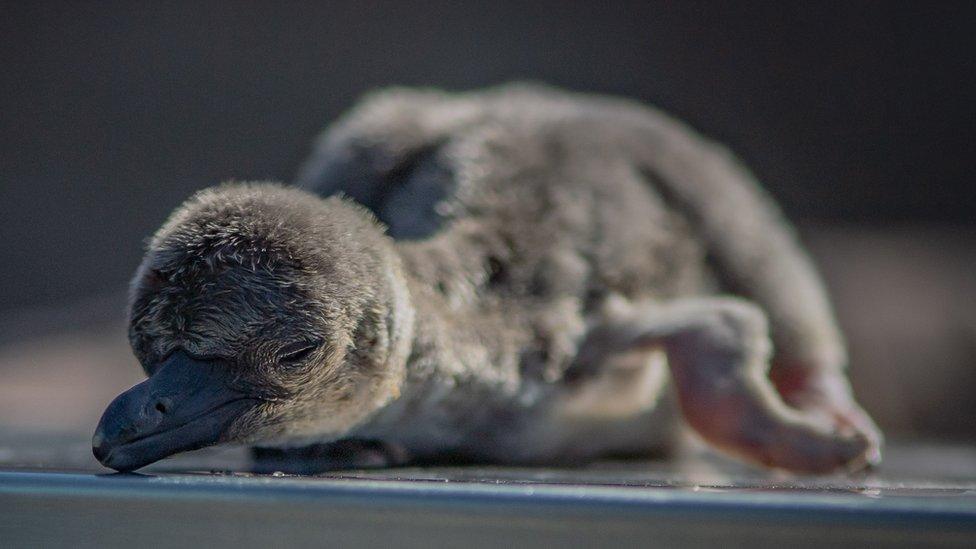'World's oldest' Humboldt penguin dies at Yorkshire zoo
- Published
Rosie had lived at Sewerby Hall in East Yorkshire since 1990 when she was brought from a bird park in Surrey
Zoo staff are mourning the loss of what was believed to be the world's oldest Humboldt penguin after her death at 32.
Rosie had lived at Sewerby Hall in East Yorkshire since 1990, when she was brought from a bird park in Surrey.
Native to South America, Humboldts can live up to 20 years in the wild and are classed as "vulnerable to extinction".
Staff at the Bridlington zoo said Rosie, who was just a few weeks short of her 33rd birthday, died in her sleep on Friday.
Head zookeeper John Pickering said: "We are all devastated by the loss of Rosie.
"I myself have been with her since she was four months old, and we have spent 32 years of our lives together in one way or another through all of life's trials and tribulations."
Rosie also had "a very special place in their hearts" of the other staff and visitors to the zoo, he added.
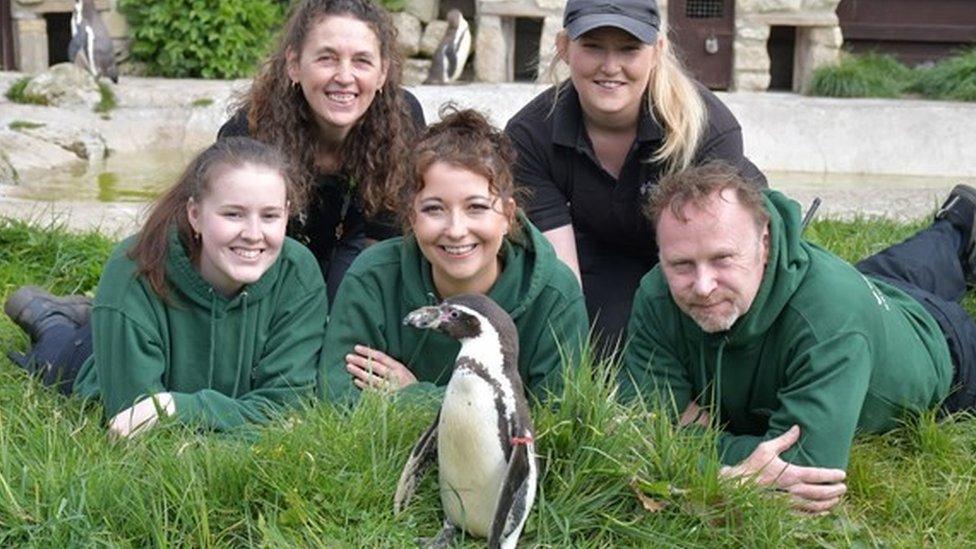
The team at the zoo will be holding a special tribute, and are inviting the public to share their memories and photos of Rosie
In recent years, Rosie had become a star of media and social media across the world, with her 30th birthday celebrations being featured on news channels in the US, Australia, New Zealand, Turkey, and Saudi Arabia.
Rosie, described by staff as "the grand old lady", was also featured in Hello! magazine and on TV shows across the UK.
To honour Rosie's memory, the team at the zoo will be holding a special tribute, and are inviting the public to share their memories and photos of Rosie on social media using the hashtag #RememberingRosie.

Humboldt penguins
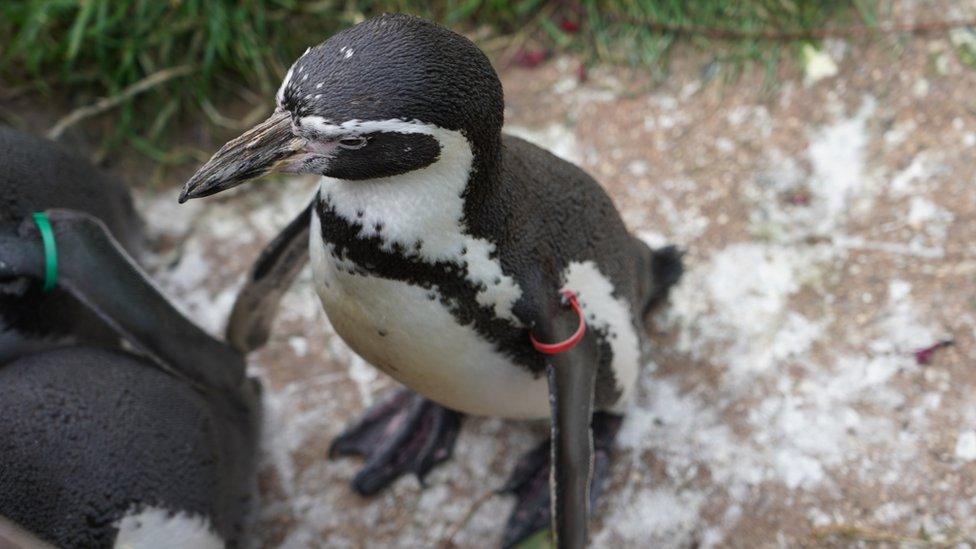
Part of the reason Rosie was thought to have lived for so long was because of her comfortable life at the zoo, staff said
The scientific name for Humboldt penguins is Spheniscus humboldti
Humboldts are classed as vulnerable to extinction by the International Union for the Conservation of Nature
Humboldt penguins are very social and live in large colonies
They can live up to 20 years in the wild
Humboldts can travel through water at speeds of up to 25mph
Source: IUCN/BBC

Follow BBC East Yorkshire and Lincolnshire on Facebook, external, Twitter, external, and Instagram, external. Send your story ideas to yorkslincs.news@bbc.co.uk, external.
Related topics
- Published20 April 2021
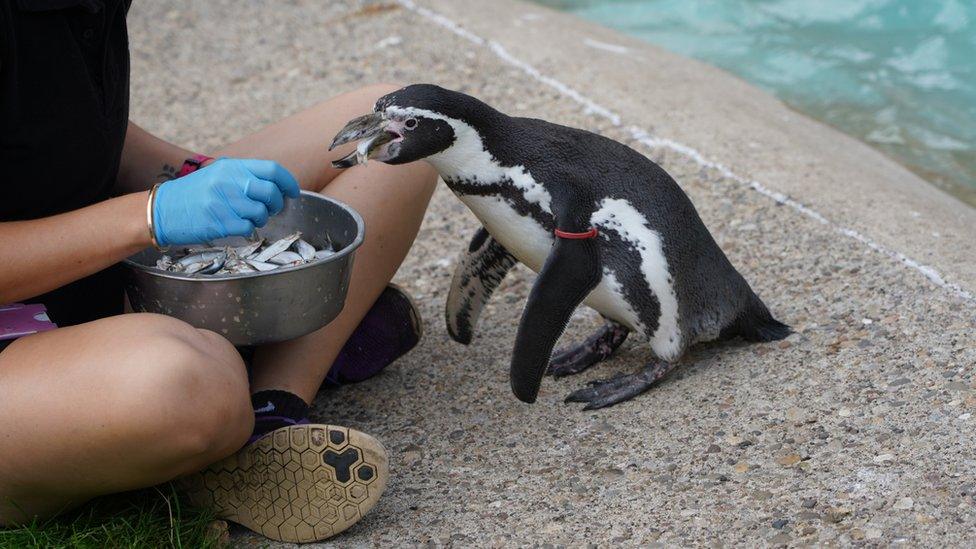
- Published12 June 2020
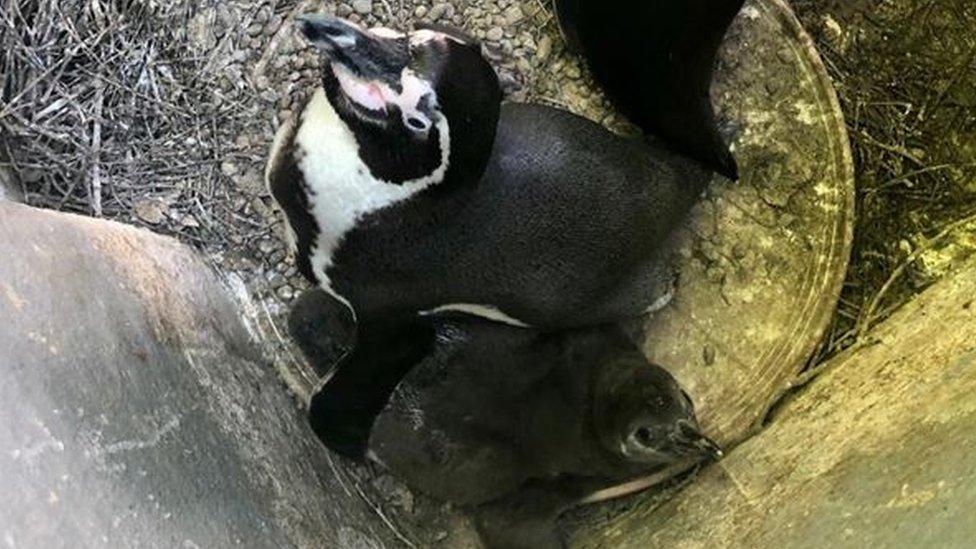
- Published6 May 2020
